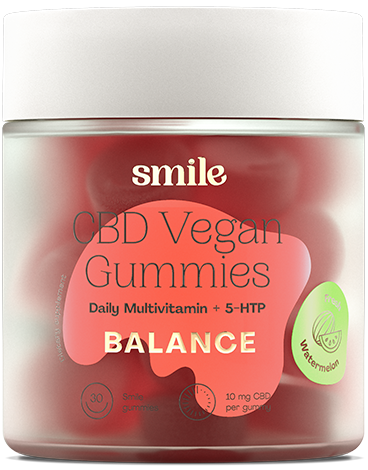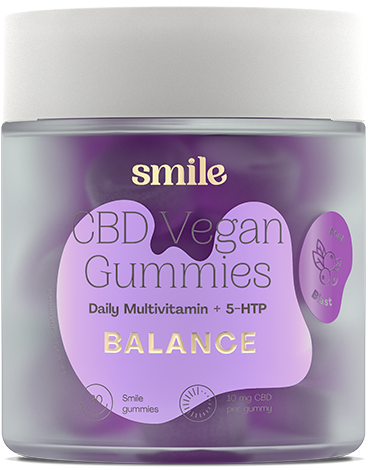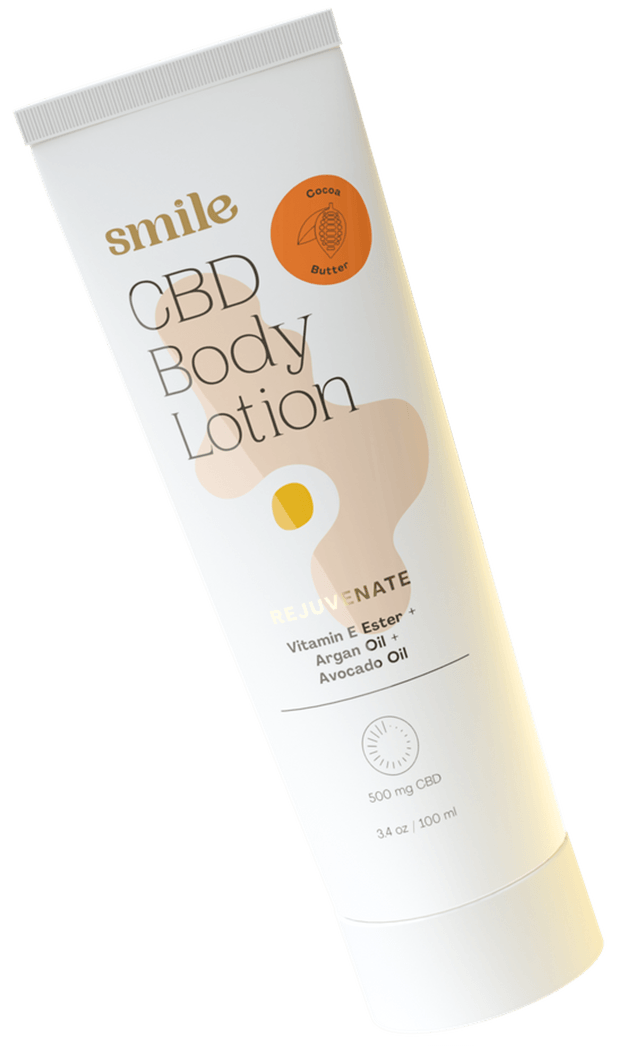You’ve probably heard of CBD because of its calming properties and its ability to bring you down into a much more peaceful headspace. It’s a great compound for holistic wellbeing, and it’s becoming a lot more widely accepted now than it once was.
Despite the increase in popularity, if you asked even the most frequent CBD users what exactly the acronym stands for, they may draw a blank. And that might be because it’s not actually an acronym at all.
So what exactly does CBD stand for?
CBD’s Real Name
We’d love it if CBD were short for something fun like “Cool, Balancing, and Dreamy” but we suppose that doesn’t really roll off the tongue. And while CBD is all of those things, its real name makes a lot more sense.
CBD is short for cannabidiol, which is a cannabinoid. It’s an isolated compound from the hemp plant that’s found in all parts of the plant except the seed. So, CBD is found in the flowers, stems, and leaves.
This science-y sounding word is admittedly more proper sounding than our own acronym. With that said, how do you even pronounce it?
How Do You Say Cannabidiol?
When you look at this word, it’s natural to want to say something like “ka-nuh-bih-dee-all” because of how you might pronounce other words that end in -iol, such as vitriol.
Oddly enough, cannabidiol is pronounced “ka-nuh-bih-dai-uhl,” with the inflection on the “dai.” So the final portion of the word should rhyme with something like dial or trial. But since we’ve got such a helpful abbreviation, all you need to know is that it’s called CBD!
When Was CBD Discovered?
Believe it or not, CBD has actually been used for thousands of years as a way to reduce stress, soothe tension, and lessen feelings of pain. And while the way we use CBD has changed drastically, the reasons we use it aren’t much different at all.
With that said, isolated cannabidiol wasn’t discovered until 1940 by an organic chemist named Roger Adams. At the time they referred to it as “Minnesota wild hemp” because a lot of the substance’s isomers were still unknown. It wasn’t until the 1960s that its configurations were fully determined.
Later on in the 1970s, Iraeli scientists led by Raphael Mechoulam discovered that cannabidiol isn’t psychoactive. Because of that, it continues to be investigated as a therapeutic remedy for things like seizures and anxiety.
Where Does CBD Come From?
A lot of people confuse CBD oil with hemp seed oil, but that’s because they both come from the same plant. The hemp plant is responsible for both of these substances, but hemp seed oil only uses the seeds of the plant, while CBD incorporates all parts. And, hemp seed oil doesn’t always have CBD — on its own, it’s comparable to olive oil.
Once these plants are harvested, the oils can be extracted through a number of different processes. Typically, a chemical solvent is used to remove and collect essential oils, compounds, and other minerals from the stalks, flowers, and leaves of the hemp.
Producers might use a process called supercritical carbon dioxide extraction, which uses non-toxic liquid CO2 as a solvent. This is forced through ground plant material, pulling out the CBD, essential oils, lipids, and other beneficial plant compounds. When this solvent is removed, it yields oil that is naturally chock full of CBD and these other valuable plant nutrients.
Are There Different Types of CBD?
There are a few different types of CBD to choose from, but the two main types that you’re likely to encounter are broad-spectrum CBD and CBD isolate.
- Broad-spectrum CBD: Contains all compounds naturally found in the hemp plant. It might contain CBD as well as cannabichromene (CBC) or cannabinol (CBN).
- CBD isolate: Only CBD with no other cannabinoids.
But CBD isolate doesn’t mean it can’t be combined with other vitamins and nutrients for fantastic holistic benefits. It just means that it doesn’t contain any other cannabinoids in the compound itself.
For instance, CBD isolate might be paired with hemp seed oil, coconut oil, melatonin, and omega-6 fatty acids to help support everyday stress and promote peaceful sleep. Similarly, CBD isolate can join forces with vitamin B12 for increased energy, ginseng for mental clarity, and 5-HTP for improved mood.
How Does CBD Work?
CBD is just one example of over 100 different types of cannabinoids that have currently been discovered. All cannabinoids interact with something called the endocannabinoid system, which is a complex biological system in our bodies that can regulate a number of bodily processes, like appetite, mood, sleep, and memory.
With that said, researchers don’t know too much about the endocannabinoid system, so there is much more that’s yet to be discovered. CBD might be even more beneficial than we already know!
Your body produces its own endocannabinoids, which are similar to cannabinoids. These bind with receptors throughout the body to engage with certain functions. Two primary endocannabinoid receptors are CB1 and CB2, which are primarily in the central nervous system and peripheral nervous systems, respectively.
For example, if you take a CBD gummy, the cannabinoids might bind with the CB2 receptor in the peripheral nervous system to aid in pain reduction and reduce inflammation in affected areas.
Is CBD Legal?
The hemp plant has always had some negative connotations despite always being the same beneficial compound it always was. However, it’s become much more accessible and widely accepted thanks to the 2018 Farm Bill.
With passage of this legislation, it became legal for production, manufacturing, and consumption of CBD products in all fifty United States. It’s why you can now buy CBD products in store or online super easily!
Will it Make Me Fail a Drug Test?
With all of that in mind, there is still some hesitancy surrounding using CBD, especially since many people believe it will make them fail a drug test. Since CBD is 100% legal, the short answer is that it will not make you fail a drug screening.
With all CBD and hemp products, there is potential for complications to arise during an initial drug screening. However, rest assured that secondary screenings will be completed to isolate CBD from other unfavorable substances.
CBD is supposed to help with stress, not cause it! If you’re feeling a little worried, don’t hesitate to have a little chat with an employer or physician.
Will it Make Me Feel High?
CBD is in no part psychoactive, nor does it impair judgement. So you don’t need to worry about feeling “high” when you take a CBD gummy or put a few oil drops under your tongue.
If you’ve never used CBD before and don’t know what to expect, know that it’s likely more mild than you might imagine. Anticipate soothed muscles and tension relief, as well as a clear headspace and an overall relaxed feeling. But you’ll absolutely still be able to go on with your day even if your morning starts with some cannabidiol.
This is true even if you accidentally take a bit too much. While CBD’s effects improve when used regularly, it won’t become more potent just because you use more than the daily recommended dosage. So, don’t stress if you accidentally take an extra gummy.
With that in mind, you can feel a bit of nausea or stomach aches if you really go overboard, so just play it safe and take the dosage suggested on your product. This will let you get the most out of your CBD while also letting it last a little bit longer.
In Conclusion
CBD is an abbreviation for the word cannabidiol, pronounced “ka-nuh-buh-dai-uhl.” It’s a compound extracted from the hemp plant through solvent methods such as supercritical carbon dioxide extraction.
CBD binds with receptors in the endocannabinoid system to bring feelings of overall calmness and tension relief. It’s also 100% legal, so you don’t need to worry about failing a drug test or experiencing cognitive impairment from using it.
While CBD’s real name might be a bit disappointing, the compound itself can stand for so much more. It can reduce feelings of anxiety, it has anti-inflammatory properties, and it can even help you sleep. What’s not to love?
One of the best ways to learn about the positive effects of CBD is to try it yourself! Smile combines CBD isolate with other essential vitamins and nutrients in all of our gummies, oils, and topicals. We’ve got flavors and methods that are sure to help anyone feel grounded during life’s most heated moments, and that’s a pretty good reason to smile!
Sources:



